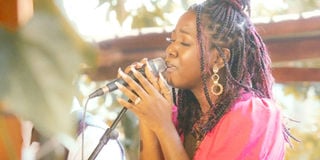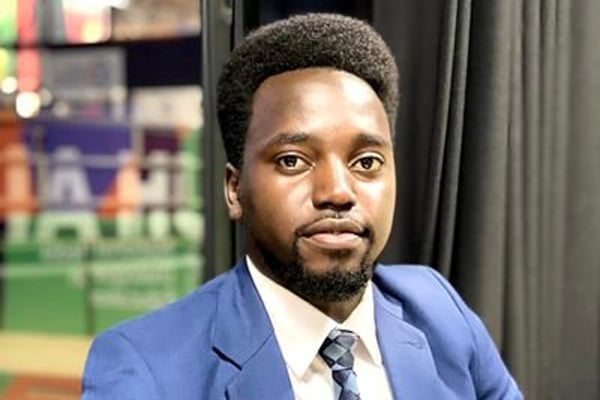Prime
Resilient songstress returns to music

Lilly Aheebwa
What you need to know:
Melody. Navigating litigation in a law firm and advocacy in a local NGO, reality kicked in. It dawned on Lilly Aheebwa that law was not her calling. A void lingered within her soul- a yearning for melodies that once set her spirit ablaze.
'Beera Nange', a ballad brimming with youthful energy and contagious beats, introduced audiences to the soulful vocals of Lilly Aheebwa and R&B crooner, Allan Toniks. The collaboration under their duo moniker Toniks promised a continuation of musical brilliance akin to their breakthrough hit. Fate, however, had a different trajectory planned for Aheebwa, steering her away from the limelight and into the shadows of uncertainty.
Fifteen years later, Beera Nange still resounds within the corridors of Ugandan music lore. The big question that has, however, remained for a long time is: what transpired behind the scenes, forcing Aheebwa to take a hiatus from the industry? In an exclusive interview, she filled Arts & Leisure in on how life has come full circle. It started with a steadfast musical takeoff before the arc bent to the world of law and advocacy. Currently, she has renewed ties with her first love—music.
At the age of seven, Aheebwa discovered her passion for singing and songwriting. With her bed serving as the stage, toothbrush as the microphone, and the bedpost as her makeshift microphone stand, she honed her craft, delivering performances for her sister, who always encouraged her to have something to sing about.
A huge tonic
During her high school years at Kings College Budo, Aheebwa crossed paths with Allan Ampaire. Known as Allan Toniks, Ampaire was deeply rooted into music. At Budo, they were both part of the school band that played host to many school events. The duo, too, used to hang out together at musical spaces during their school holidays.
Despite parting ways after O-Level, their friendship endured, culminating into an unforeseen reunion during senior six vacation in 2007. It was during this reunion that Toniks, already making promising strides in mainstream music, presented Aheebwa with a musical canvas, awaiting her lyrical brush strokes.
“He had an idea of what we could work on and he gave me a CD with the track so I could listen and write my lyrics off the beats. I wrote my lines and verses as fast as I could,” she reminisces, adding, “Listening to the song today, I cannot help but wonder where all the lines came from so fast and quick.”
Aheebwa says there was a lag in between when they recorded Beera Nange and when it actually blew up on the airwaves and dance floors.
“We recorded the song during our vacation, but it gained popularity after we joined university. The first time I heard it play was on the African Express show and later on Sanyu FM by Crystal Newman. I heard it twice that day while in my room and I could not believe my ears,’’ she says.
Into hiding?
Aheebwa reveals that, initially, some media stations were at first reluctant to play the song as they deemed it too urban for the time and their audiences. As Beera Nange soared to unprecedented heights, she found herself navigating uncharted territory. She had to juggle newfound musical fame with the rigours of academia and career to which she deserted the latter for the former.
Enrolled at Makerere University, pursuing a Bachelors of Law, Aheebwa ‘s musical aspirations took a backseat. The hiatus prompted Toniks to take on the moniker Toniks as she ventured into the world of jurisprudence, eventually attaining all her legal credentials. Despite her professional success, an undeniable void lingered within her soul- a yearning for melodies that once set her spirit ablaze.
She asserts that her departure stemmed from an overwhelming onslaught of fame and the suffocating pressure of public expectations. The weight of maintaining her musical legacy proved burdensome, prompting her retreat into the altar of academia.
As the years went by, in line with her profession, she found herself navigating the intricacies of litigation in a law firm and subsequently advocacy in a local NGO. Then reality kicked in. It dawned on Aheebwa that law was not her calling.
Return to music
Although Aheebwa had quit music for a long time, she notes that all was not lost as she recorded a few projects around 2013 after law school. They, however, never materialised. “The stuff I wrote just never really resonated with me. And the whole time while I wrote, I was thinking, ‘oh, I need to write another hit song.’ And that blocked me,” she discloses.
She, however, mentions that having kept in touch with Allan Toniks, she did some background musical work with him, mostly on two of his 2013 singles—Mba Nkumisinga and Tugende Tukyekole. She wrote the former and backed the latter.
In 2020, amidst global upheaval, she emerged from the shadows, releasing a 12-track album titled Freedonia. Having been out of the industry for years, she thought it wise to make a comeback not with just one or two songs, but a whole body of work.
With each note, she redesigned her identity, infusing her melodies with a newfound sense of purpose and authenticity.
Unlike her contemporaries driven solely by commercial success, Aheebwa’s vision is different. “It is about finding my feet and expressing myself. I am making the music I want and if something great comes out of that, awesome,” she says.
Motherhood
After re-launching her musical career, she had to take another sabbatical after welcoming her other son during the pandemic. Last year, she released a few projects such as Bless, Love Letter, and Where You Are. Aheebwa says she looks at 2024 as her year to fully reemerge as an artiste. She is set to release her first project next month.
In an era dominated by commercialism and superficiality, she champions the ethos of authenticity and artistry, refusing to compromise her creative integrity for fleeting acclaim.





